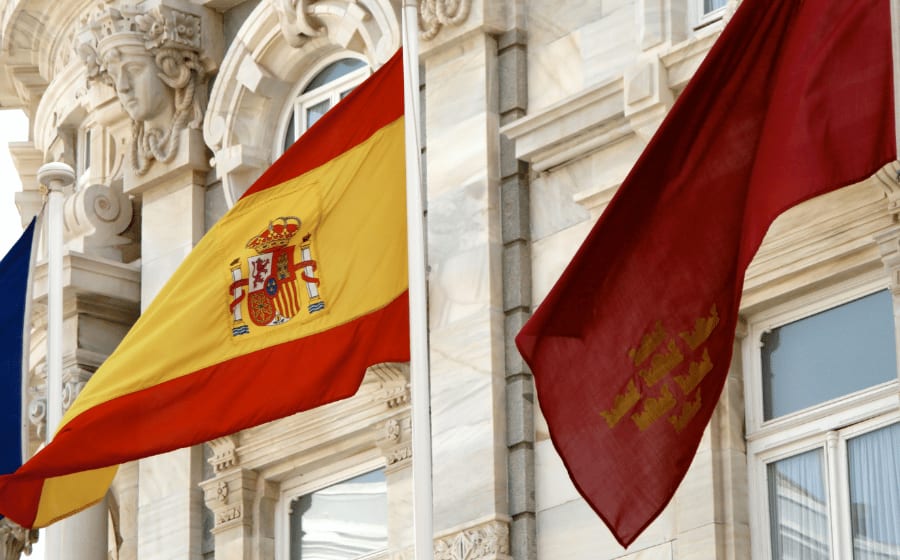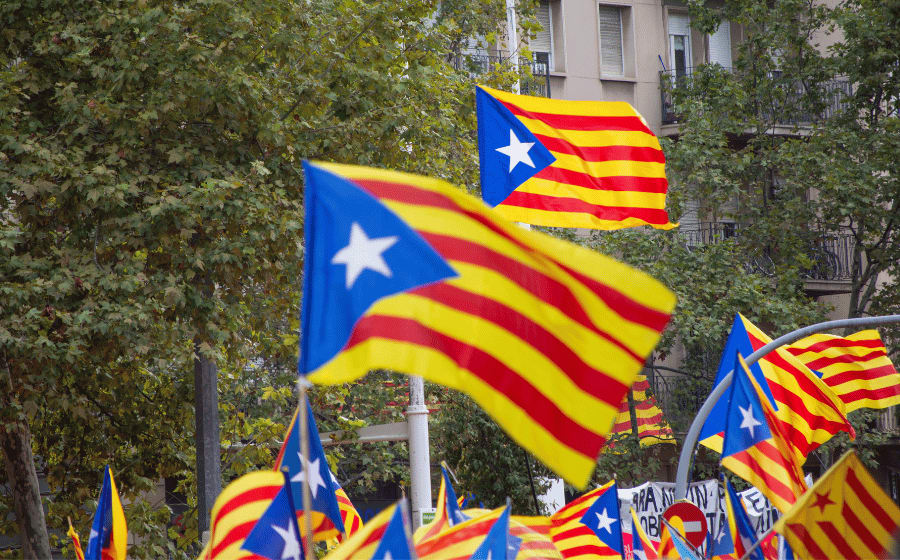How Authoritarian is Spain? Freedom Index, Democracy & Corruption
January 30, 2023
Win a FREE Trip to Spain!
Exciting Announcement! For the first time, we're thrilled to offer exclusive trips to the heart of Spain - an experience like no other. This isn't your typical tourist journey; it's a unique opportunity to immerse yourself in authentic Spanish culture, alongside real locals and our passionate team.
But there's more! Simply by requesting information about this amazing trip, you'll be entered into a special draw to win a Fully Paid Trip to Spain for Two. And that's not all - everyone who inquires will receive an exclusive bonus gift, valued at $500, available only now.
Ready to Discover the Real Spain?Click Here ↑ to Request Information & Enter the Draw!
Spain is a democracy. However, although it holds national sovereignty and division of powers, its democratic values have been repeatedly called into question: is Spain a democratic country?
In this article, I’ll reveal the most important data about Democracy in Spain, corruption rates, and how free Spain is from different social and political dimensions.
If you haven’t read our introductory article about Politics in Spain, I suggest you visit it to get the bigger picture: How Does the Spanish Political System Work? Full Video Explanation!
Stay tuned because I am going to spill the tea about Spanish politics.
Table of Contents ▼ ▶
Is Spain Authoritarian?
Spain is a democratic state, based on the rule of law and welfare, with a market economy. Its political form is a parliamentary monarchy, and the Government’s system is based on national sovereignty, division of powers, and a parliamentary system.
But is it a Full Democracy or a Flawed Democracy? We’ll see that later! (with details)
How Free is Spain compared to other countries?
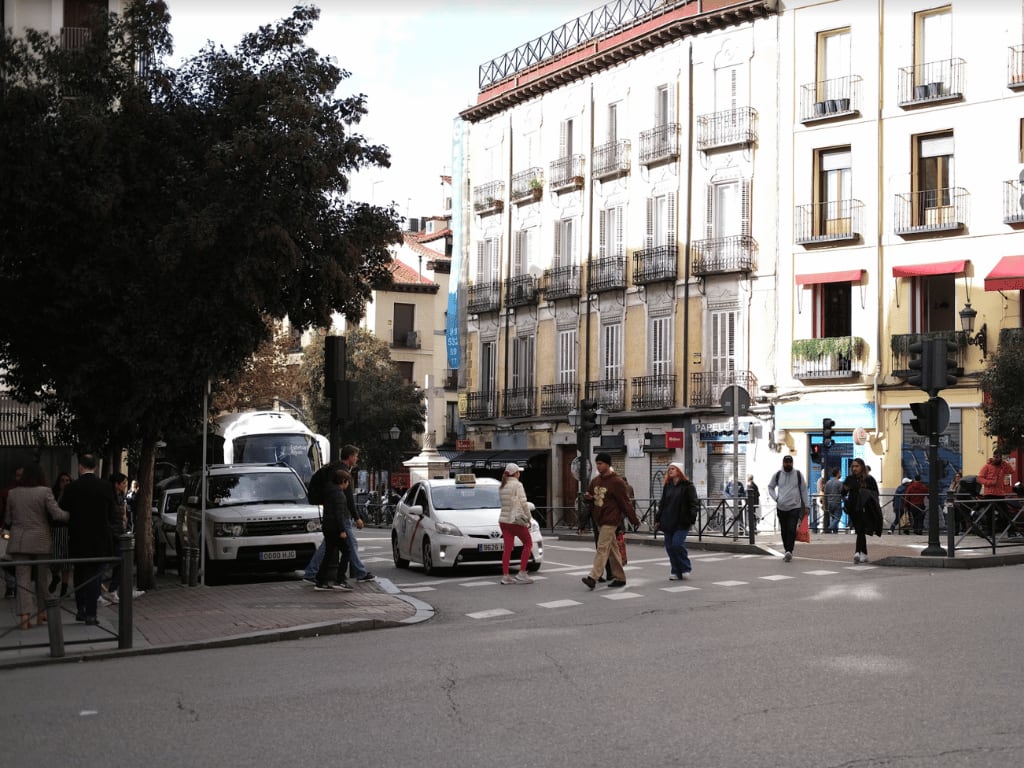
To analyze “How free” Spain is compared to other countries worldwide, it is necessary to look at the data.
This is why we’ll talk about The Human Freedom Index, published by the Cato and Fraser Institute. It presents a broad measure of human freedom, understood as the absence of coercion.
It comprises areas of personal and economic freedom in the following dimensions:
- Rule of Law
- Safety and Security
- Circulation
- Religion
- Association, assembly, and civil society
- Expression and information
- Relations
- Size of Government
- The legal system and property rights
- Strong currency
- Freedom of international trade
- Regulation
So, this resource can help us objectively watch the relationship between freedom and other social and economic dimensions we’ll also cover in the article.
Here are the 2022 results:
| Country | Personal Freedom | Economic Freedom | Human Freedom |
|---|---|---|---|
| 1. Switzerland | 9.35 | 8.37 | 8.94 |
| 2. New Zealand | 9.09 | 8.27 | 8.75 |
| 3. Estonia | 9.28 | 7.95 | 8.73 |
| 4. Denmark | 9.17 | 8.09 | 8.72 |
| 5. Ireland | 9.3 | 7.86 | 8.7 |
| 6. Sweden | 9.45 | 7.56 | 8.66 |
| 7. Iceland | 9.29 | 7.73 | 8.64 |
| 8. Finland | 8.85 | 7.64 | 8.62 |
| 9. Netherlands | 9.17 | 7.75 | 8.55 |
| 10. Luxemburg | 8.95 | 7.54 | 8.53 |
| 11. Australia | 8.98 | 8.04 | 8.51 |
| 12. Norway | 8.89 | 7.58 | 8.51 |
| 13. Canada | 8.8 | 7.68 | 8.47 |
| 14. Taiwan | 8.71 | 7.77 | 8.44 |
| 15. Latvia | 8.75 | 7.82 | 8.42 |
| 16. Japan | 8.81 | 7.82 | 8.39 |
| 17. Lithuania | 8.72 | 7.75 | 8.34 |
| 18. Czech Republic | 8.92 | 7.65 | 8.33 |
| 19. Germany | 8.76 | 7.71 | 8.33 |
| 20. United Kingdom | 8.42 | 7.37 | 8.3 |
| 21. Belgium | 8.54 | 7.56 | 8.27 |
| 22. Austria | 8.75 | 7.97 | 8.26 |
| 23. United States | 8.81 | 7.72 | 8.23 |
| 24. Malta | 8.72 | 7.43 | 8.2 |
| 25. Portugal | 8.92 | 7.84 | 8.2 |
| 26. Armenia | 8.76 | 7.02 | 8.14 |
| 27. Bahamas | 8.42 | 7.49 | 8.14 |
| 28. Cyprus | 8.54 | 7.6 | 8.13 |
| 29. Cabo Verde | 8.75 | 7.42 | 8.12 |
| 30. Korea | 8.35 | 7.63 | 8.11 |
| 31. Spain | 8.94 | 7.56 | 8.08 |
| 32. Chile | 8.59 | 7.4 | 8.06 |
| 33. Italy | 8.49 | 8.59 | 8.02 |
| 34. Hong Kong | 8.6 | 7.62 | 8.01 |
As we can see**, Spain ranks 31 out of 165 countries on The Human Freedom Index.** This means that the country is considered one of the freest in this study.
Although it outperforms in some areas considerably, as we will see below.
Spain Democracy Index

Freedom of the press, the possibility of organizing civil society, and freedom of expression are pillars of Democracy. Each of them are allowed in Spain, including the ability to criticize the Government.
However, Spain is considered to be a “Flawed Democracy.”
There has been growing general concern about the increasing degradation of the independence of the judiciary in Spain.
So, is Spain a democracy, or is it an authoritarian country?
Let me introduce you to this research study by The Economist Group called Global Democracy Index 2021. It provides a snapshot of the State of Democracy worldwide in 165 independent states and two territories.
Here are the main results:
| Full Democracy Countries Ranked | Overall Score | Functioning of government | Political participation |
|---|---|---|---|
| Norway | 9.75 | 9.64 | 10 |
| New Zealand | 9.37 | 8.93 | 9.44 |
| Finland | 9.27 | 9.29 | 8.89 |
| Sweden | 9.26 | 9.29 | 8.33 |
| Iceland | 9.18 | 8.21 | 8.89 |
| Denmark | 9.09 | 8.93 | 8.33 |
| Ireland | 9 | 7.86 | 8.33 |
| Taiwan | 8.99 | 9.64 | 7.78 |
| Australia | 8.9 | 8.57 | 7.78 |
| Switzerland | 8.9 | 8.93 | 8.33 |
| Netherlands | 8.88 | 8.93 | 8.89 |
| Canada | 8.87 | 8.21 | 7.22 |
| Uruguay | 8.85 | 8.57 | 6.67 |
| Luxembourg | 8.68 | 8.57 | 8.33 |
| Germany | 8.67 | 8.21 | 7.22 |
| South Korea | 8.16 | 8.57 | 7.22 |
| Japan | 8.15 | 8.57 | 6.67 |
| United Kingdom | 8.1 | 7.5 | 8.33 |
| Mauritius | 8.08 | 7.86 | 6.11 |
| Austria | 8.07 | 6.79 | 8.89 |
| Costa Rica | 8.07 | 6.43 | 7.78 |
Now here’s Spain:
| Flawed Democracy Countries Ranked | Overall Score | Functioning of government | Political participation |
|---|---|---|---|
| France | 7.99 | 7.5 | 7.78 |
| Israel | 7.97 | 7.5 | 10 |
| Spain | 7.94 | 7.14 | 7.22 |
| Chile | 7.92 | 7.86 | 5.56 |
| United States of America | 7.85 | 6.43 | 8.89 |
| Estonia | 7.84 | 7.86 | 6.67 |
| Portugal | 7.82 | 7.14 | 6.67 |
| Czech Republic | 7.74 | 6.43 | 6.67 |
| Botswana | 7.73 | 6.79 | 6.67 |
| Italy | 7.68 | 6.43 | 7.22 |
| Cabo Verde | 7.65 | 7 | 6.67 |
| Malta | 7.57 | 6.79 | 5.56 |
| Greece | 7.56 | 6.07 | 6.11 |
These are not all the indicators used for the research. (for the sake of this article) If you want to see the whole thing, visit their research paper. It’s very interesting!
Spain’s previous score of 8.12 meant that it was classified as a “full democracy.” However, there was a slight deterioration in its score this year, to 7.94, which was enough to downgrade it to a “flawed democracy.”
This happened right after its score fell in 2017 in the aftermath of the Catalan crisis, which led to Madrid’s central Government taking legal measures against pro-independence Catalan politicians for acting unconstitutionally.
This score also results from a decline in judicial independence related to political divisions over the appointment of new judges to the General Council of the Judiciary, which controls the judicial system.
Currently, the Council operates on a caretaker basis, as its mandate expired in 2018, and there has been no agreement on appointing new magistrates (who need a three-fifths majority in Parliament).
If you want to see a complete timeline of recent events, this article might be helpful:
Spain vs. Catalonia: 5 Key Questions to Understand the Conflict
According to the study, Spain also suffers from increased parliamentary fragmentation, crime scandals, and rising regional nationalism in Catalonia, which makes governance very challenging.
And, the longer the situation continues, the greater the risk of the Council being undermined and vulnerable to politicization.
The Economist Group study also shows how this situation is global. There is popular dissatisfaction with democratic political systems in general. These drives support for political reform and the search for alternatives to the political system.
The survey revealed that a median of 56% of those interviewed across 17 developed economies believed that their political system needed to be reformed entirely or required significant changes.
The percentages were much higher in some countries, including Italy (89%), Spain (86%), the US (85%), South Korea (84%), Greece (80%), France (73%), and Belgium (72%).
Moreover, people don’t expect the situation to change or have almost no confidence that the system will be reformed, which in turn is undermining trust in government and institutions.
Why is Spain a Democracy if it has a King?
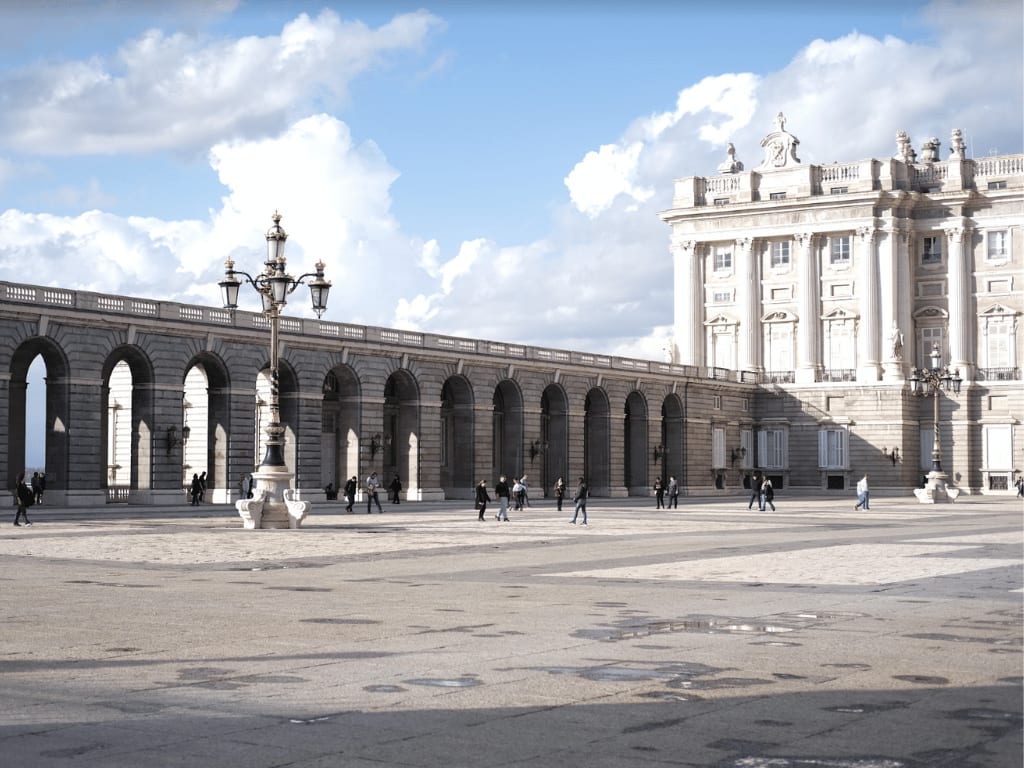
Spain has a democratic government, although it has a King, because the National sovereignty corresponds to the Spanish people. This means that its citizens hold public power, and the legislative, executive and judicial powers derive from it.
The King recognizes popular sovereignty as the Head of the State, but his role is mainly symbolic and representative since he has no direct power to legislate.
If you want to learn more information regarding Spain’s Monarchy, and the role of the Royal Family, these articles are for you:
Spain Monarchy 101: A Complete Journey of the Spanish Royal Crown
What does the Spanish Monarchy Do? Role and Influence in Spain’s Society
What type of government does Spain have?
In words of the Official website of the President of the Government and the Council of Ministers, La Moncloa:
“The political form of the Spanish State is the parliamentary monarchy. The King is the Head of State. All his acts must be countersigned by the Government, following the provisions of the Constitution in its Title II dedicated to the Crown.
Juan Carlos de Borbón y Borbón, Juan Carlos I, was proclaimed King on November 22, 1978. Following his abdication, since June 19, 2014, the King of Spain has been his son Felipe VI. The queen consort is Letizia Ortiz Rocasolano.
According to the provisions of the Constitution, his firstborn daughter, Princess of Asturias Leonor de Borbón Ortiz, is the heir to the Crown. His youngest daughter, Infanta Sofía de Borbón Ortiz, is the second in the line of succession.”
How big is the Spanish State?
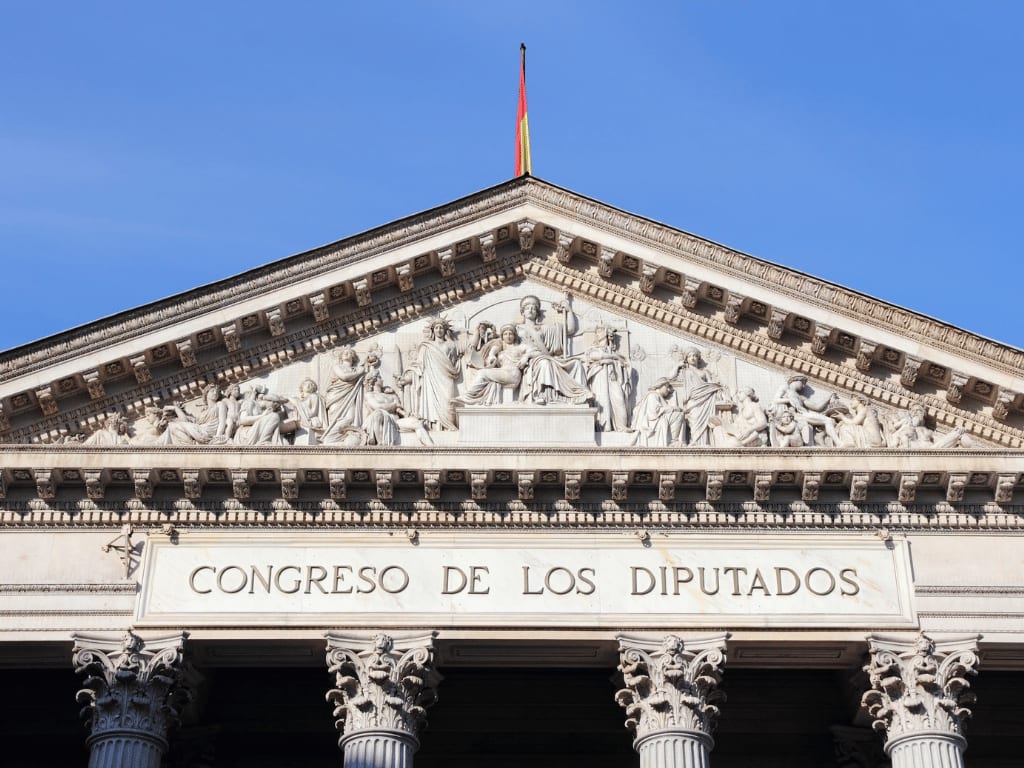
The Spanish State is composed of 22 ministers, 91,553 public employees, and a total of 229,348 people in the service of the General State Administration.
In terms of money, the State’s general budget in 2023 will reach 376,997 million euros.
- Last year, there was an expenditure of 527,108 euros (11,070 euros per capita).
- There was an Income of 376,997 euros and per capita of 7,918.
- This resulted in a Deficit (non-financial): of -66,003 euros and a per capita deficit of -1,386 euros.
So, Spain faces a high deficit and public debt levels that will continue growing and whose trajectory is unsustainable.
Leading financial analysts agree that one of the most traditional ways of evaluating whether the Government is being productive is to look at economic effectiveness and efficiency. Let’s look at the following:
- In terms of effectiveness: Spain ranks 18th among the 21 OECD countries in assessing the effectiveness of its public sector. It obtains an overall score of 0.86 (14% below the OECD average).
- Regarding efficiency, it ranks 15th with a score of 0.74 (26% below the average). In other words, the Spanish State is among the most inefficient and ineffective of developed economies.
And why am I telling you all of this?
Well, as you can see, it is ironic since the average state spending over the last 10 years is 44.3% of GDP. So, what is happening with the public funds?
| Pensions | 190.684.246.150 € |
|---|---|
| Transfers to other public administrations | 66.457.250.490 € |
| Public debt | 31.275.104.090 € |
| Other economic benefits | 22.299.229.990 € |
| Unemployment | 21.277.384.680 € |
| Defense | 12.313.865.490 € |
| Infrastructure | 10.869.598.590 € |
| Public safety and penitentiary institutions | 10.718.220.830 € |
| Research, development and innovation | 10.449.244.870 € |
| General services | 9.657.929.040 € |
| Industry and energy | 9.002.384.560 € |
| Agriculture, fishing and food | 8.511.340.860 € |
| Employment promotion | 8.028.626.590 € |
| Social services and social promotion | 7.113.834.680 € |
| Health | 7.048.459.800 € |
| Education | 4.922.745.740 € |
| Transport subsidies | 3.447.680.300 € |
| Justice | 2.290.664.780 € |
| Social security management and administration | 2.259.255.210 € |
| Foreign policy | 2.190.349.640 € |
| Access to housing and building development | 2.116.835.650 € |
| Culture | 1.790.724.860 € |
| Financial and tax administration | 1.752.739.740 € |
| Trade, tourism, and SMEs | 1.669.306.400 € |
| Other economic activities | 1.448.441.470 € |
| Senior management | 932.674.510 € |
| Labor and social economy management and administration | 193.403.510 € |
How corrupt is Spain?
Spain scores 61 points on a scale of 100 regarding Corruption and occupies 34th place out of 180 countries. Where 0 is very corrupt, and 100 is very transparent in the 2021 Corruption Perceptions Index published by Transparency International.
Moreover, the country, under the administration of the socialist Government of Pedro Sánchez, fell on the global list compared to previous years.
Here you can see the results:
Countries at the top are the less corrupt. The more down on the list, the more corrupt the nation.
| Ranking | Nation or Territory | 2021 Score |
|---|---|---|
| 1 | Denmark | 88 |
| 1 | Finland | 88 |
| 1 | New Zealand | 88 |
| 4 | Norway | 85 |
| 4 | Singapore | 85 |
| 4 | Sweden | 85 |
| 7 | Switzerland | 84 |
| 8 | Netherlands | 82 |
| 9 | Luxembourg | 81 |
| 10 | Germany | 80 |
| 11 | United Kingdom | 78 |
| 12 | Hong Kong | 76 |
| 13 | Austria | 74 |
| 13 | Canada | 74 |
| 13 | Estonia | 74 |
| 13 | Ireland | 74 |
| 13 | Iceland | 74 |
| 18 | Australia | 73 |
| 18 | Belgium | 73 |
| 18 | Japan | 73 |
| 18 | Uruguay | 73 |
| 22 | France | 71 |
| 23 | Seychelles | 70 |
| 24 | United Arab Emirates | 69 |
| 25 | Bhutan | 68 |
| 25 | Taiwan | 68 |
| 27 | Chile | 67 |
| 27 | United States | 67 |
| 29 | Barbados | 65 |
| 30 | Bahamas | 64 |
| 31 | Qatar | 63 |
| 32 | South Korea | 62 |
| 32 | Portugal | 62 |
| 34 | Spain | 61 |
| 34 | Lithuania | 61 |
| N/A | Brunei | 60 |
| 36 | Israel | 59 |
The future of Spain is very uncertain as far as politics is concerned. We are living through some very complicated years that will mark the course of the future.
Through education and knowledge from Sensational Spain, our team is committed to spreading awareness about these matters that concern us all, so they are known.
Only in this way can we hope that the great leaders of tomorrow will be able to take actions that will benefit the country, honoring its history and people.



